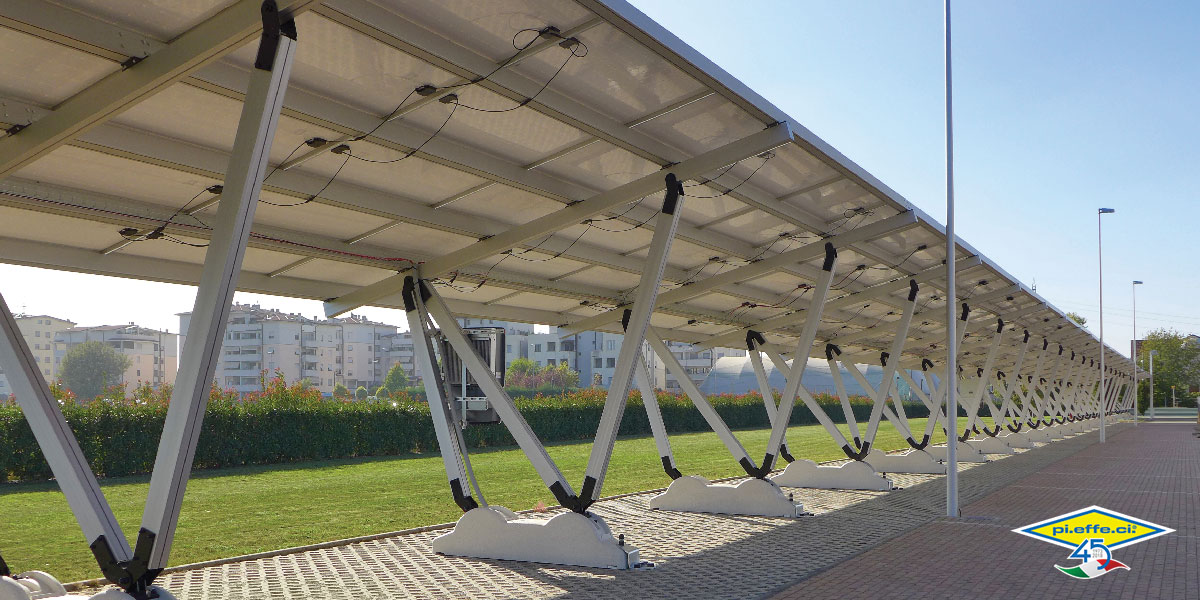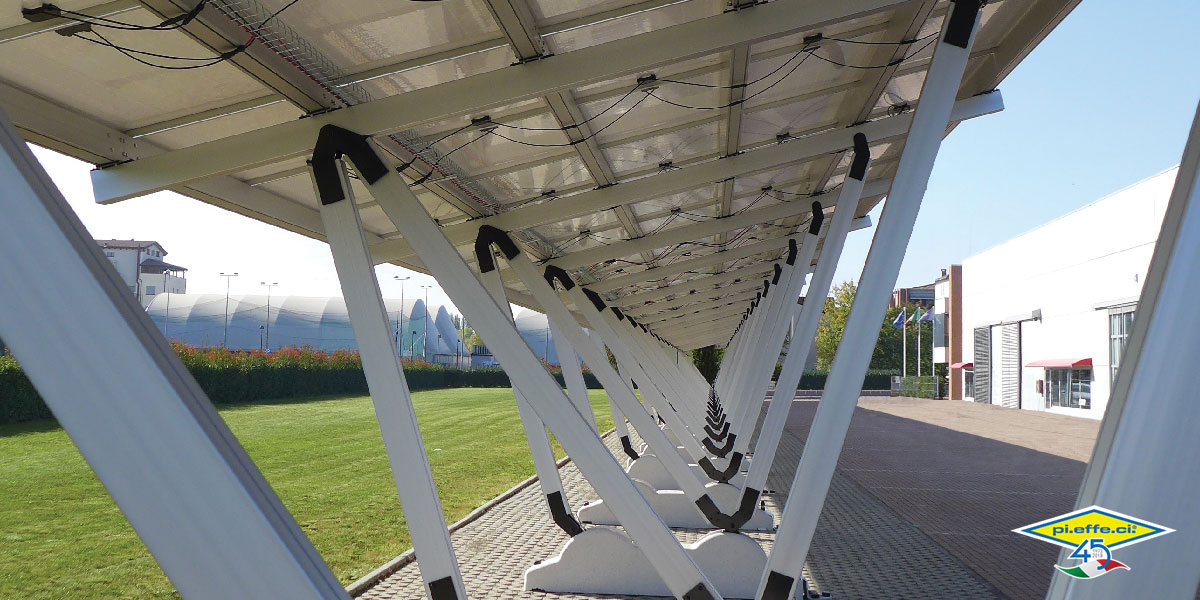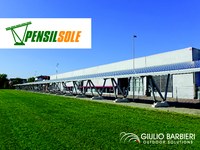Pi.Effe.Ci. S.r.l. chooses solar carports for solar energy self-consumption
The installation of solar carports transformed a secondary area such as the parking lot into the beating energy heart of the company, a far-sighted and practical choice: nowadays a photovoltaic system is remarkably convenient, especially if it is used for self-consumption.
In the Italian industrial sector, self-consumption has already reached 20% of the total energy produced through photovoltaic systems and this percentage is expected to grow exponentially in a very short time.

"Adding the panels on a carport is the best way to ensure that the system has the necessary ventilation and routine maintenance, thus maximising its performance," says Stefano Lo Biundo of Siet Service. "In fact, unlike a rooftop system, the one on a carport is within reach, which also avoids the risk of damaging the building. Together with our partner, Giulio Barbieri, we were able to offer the fastest and least destructive turnkey solution. The installation was completed in a brief time thanks to the fact that the carports have concrete bases and do not require foundations."
"We are delighted to have supplied our carports to such an important business as Pi.Effe.Ci., a state-of-the-art company that produces and exports more than 10 million products a year," says Giulio Barbieri, owner of the company of the same name. "This client wanted to cover about 50 parking spaces, and it took us only six working days to put the structures in place. Our product is very well designed and entirely manufactured in our headquarters in Ferrara. Those who choose our carports know that they can count on reliable, high-quality design, which often isn't the case when it comes to structures for photovoltaic systems. Our structures are certified and consist of aluminium profiles, a material that does not deteriorate over time, unlike iron structures which are subject to corrosion."
Pi.Effe.Ci has, therefore, chosen Italian design to revamp its corporate image and firmly declare its green vision by installing solar carports and more: to express the support of the environment, the carports have been equipped with a charging station for cars designed by Giulio Barbieri, to encourage electric mobility.
"We really want to help turn our cities into clean and healthy places, so we have developed a range of charging stations for electric vehicles that can be added to our solar carports, " says Giulio Barbieri. "Unlike the other products on the market, our columns are fully customisable with the colours and logos of the company. This is a key aspect because today, putting your company logo on a device like this also has an essential communicative value and it shows that your business takes care of the environment! The cases, like that of Pi.Effe.ci, are increasingly more frequent, which shows that we have finally entered a phase of energy transaction that finally sees companies put the environment first". For every kWh of fossil energy consumed, the CO2 emissions are equal to 0.443 kg. A solar power plant, therefore, can reduce emissions from a minimum of 1,329 to 1,772 kg of CO2 each year depending on the part of Italy where they are located. .

2018 will be remembered as the year in which the world solar market finally exceeded the threshold of 100 GW of annual facilities, reaching a cumulative operating capacity of over 500 GW. In Europe, the solar market is investing in building a new stepping stone that promises excellent progress in the short term. This is confirmed by the numbers published by SolarPower Europe in its latest Global Market Outlook 2019-2023. It is estimated that European solar energy will reach 20.4 GW of new capacity this year, aiming for 24.1 GW by 2020. "Europe has now entered a new era of solar energy growth," explains Walburga Hemetsberger, CEO of SolarPower Europe, "and with the recently completed Clean Energy For All package, we have a new framework for the photovoltaic industry that will allow the technology to flourish even more in the coming years."
